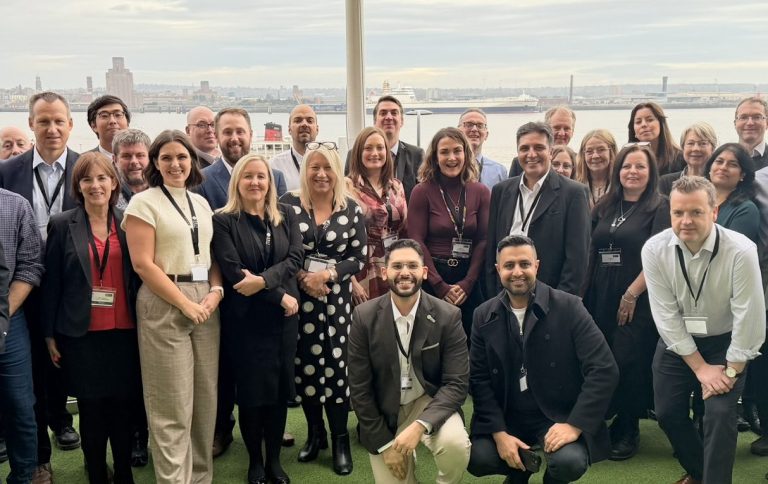- Find our latest Case Studies
- Our Platforms
First new antibiotic in 50 years moves to human trials

The recent announcement that Roche is successfully bringing forward a new class of antibiotics is welcome news and an important breakthrough in the global battle against antimicrobial resistance (AMR).
The first new class of antibiotics in over half a century, the novel antibiotic zosurabalpin has been jointly developed with Harvard University. It is designed to tackle one of the world’s most deadly infections; carbapenem-resistant Acinetobacter baumannii (CRAB) a superbug considered an urgent threat by the CDC.
Drug resistant Acinetobacter disproportionately impact patients who are in hospital, causing invasive infections like pneumonia and bloodstream infections (sepsis) in patients across the world.
The narrow spectrum antibiotic, which will go into phase three human trials later this year or early next, relies on a new mode of action that bacteria have not developed resistance against. This offers new hope for both current and future sufferers of the infection, which is one of the WHO’s highest priority pathogens.
A new era for Big Pharma?
Antimicrobial-resistant (AMR) infections cause an estimated 1.3m deaths globally each year, and rising, and lead to the failure of antibiotics for treating human illness. 67,000 people experienced an AMR infection in 2023. 2,200 of those people died.
The UN has predicted that by 2050, AMR will cause 10million or more deaths, comparable to cancer as a leading cause of death. The increasing dangers it presents are a chronic risk to the global community, with severe implications for the population’s health, communities, and economy.
This global impact, coupled with the poor state of research and development investment into new antimicrobials, has led the WHO to designate AMR as one of the top 10 global public health threats. The future of millions of lives affected by resistant infections hang in the balance.
The well-documented issues facing the antimicrobial pipeline include an extremely challenging high risk and low reward market. Coupled with numerous financial and regulatory barriers, this landscape has caused many established players to exit the market – leaving smaller biotechs to shoulder the innovation burden.
With historically little appetite from big pharma in developing new antibiotics, does Roche’s success signal a wider turning of the tide?
Netflix and pill?
Globally, the concerted public private push to accelerate innovation in this space and drive the development of new antibiotics looks to be gaining traction.
Several levers are being used to supercharge antibiotic R&D innovation. These include incentivising investment through market entry rewards, public-private partnerships, voucher systems, and subscription models, while also addressing the challenges of high development costs and resistance.
Innovative market shaping tools which ‘de-link’ investment and sales volume, are critical reframing the market landscape in which companies operate and support industry to invest in developing new antimicrobials.
The UK is leading the way in driving forward innovative new approaches to incentivise industry, raise wider awareness of the issue of AMR, and ensure the responsible use of antimicrobials.
The Government recently launched its innovative ‘Netflix style’ subscription model. The Antimicrobial Products Subscription Model offers companies a fixed annual fee for access to their products, irrespective of sales volume. This creates a stable revenue stream for companies and provides the NHS with access to novel antimicrobial drugs for drug-resistant infections.
Under the model, NHS England will pay a fixed annual subscription fee to a pharmaceutical company for access to new antibiotics. Companies receive a guaranteed return for access to products, with no incentive to overuse (or over sell) antimicrobials.
This world-leading approach aims to address the challenge of antimicrobial resistance by providing financial stability for innovation while discouraging overuse. In August 2024, the NHS tendered contracts with an estimated value of almost £1.9 billion over 16 years for new antimicrobial medicines. Pharmaceutical companies have been invited to apply to provide new antimicrobial medicines with contracts beginning in April 2026.
The Government’s subscription model is a part of a broader package of measures within its 20 year vision to contain and control AMR by 2040. The plan is focused on driving down the inappropriate use of antibiotics; strengthening the surveillance of drug-resistant infections before they emerge and incentivising the industry to develop the next generation of new drugs and vaccines. [Listen to our partner Dr Peter Jackson from Infex Therapeutics, explore the Government’s model HERE]
Other exciting market shaping initiatives include the PASTEUR Act in the US, which offers a similar subscription type model. This legislation, which has huge potential to reinvigorate the antimicrobial pipeline, is not yet in effect and efforts to pass it continue, with discussions about its potential impact and necessary improvements ongoing.
Driving innovation: Big pharma and SMEs
In antibacterial R&D, the pipeline remains alarmingly small in comparison with the scale of the threat. SMEs have an essential role to play in invigorating the antibiotic pipeline. iiCON is working closely with highly innovative companies driving forward a number of exciting programmes in this area.
The Milken Institute’s 2022 report into the state of the antibiotic landscape estimated that more than 95 percent of the antibiotics in development are being investigated by small companies, two-thirds of which are doing so for the first time. Supporting this incredibly valuable SME innovation pipeline to bring forward new treatments and solutions for resistant infections is a key strand of iiCON’s activity.
Our eleven platforms are playing a key role in driving forward innovative solutions to combat antimicrobial resistance. Many of our most promising projects involve working with industry partners, particularly early-stage start-ups and smaller biotechs, to support and drive forward programmes that are contributing to the global AMR effort.
However, although SMEs have largely taken up the antimicrobial baton, it’s vital that big pharma is encouraged and incentivised back into this space. Larger research led pharmaceutical companies have the potential to reset the dial and throw significant resources and capability at developing new treatments and diagnostics for resistant infections.
Big pharma has a vital role to play in combatting this huge global challenge and we look forward to seeing the results of Roche’s stage three trials. Roche says its antibiotic could lay the foundations for future efforts to combat AMR. Indeed, if successful, this treatment will offer new hope, both for individual patients, and the wider industry.


